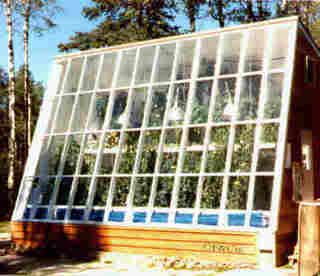Many gardeners and farmers have achieved the new technology ofhydroponics, but like many new technologies the future ofhydroponics is unknown. Hydroponics is relatively new, and it hasrapidly evolved since its inception 70 years ago.
The history of hydroponics is a very eventful one. Hydroponicsbegan as academic research as has since graduated to being used inindustry, government, and many other new applications. Theversatile technology has been used in developing countries andhigh-tech space stations.
Hydroponic technology can generate food crops from almost anywhere,including arctic communities, city rooftops, barren desert sand,and desalinated ocean water. In areas where high land prices havedriven out traditional agriculture, hydroponics can provide locallygrown specialty crops such as herbs and greens. Many are hoping thefuture of hydroponics will be just as productive as its past.
Agriculture is moving toward higher-technology, and morecapital-intensive solutions to farming problems. Hydroponics is theperfect solution for production problems, because it is highlyproductive and suitable for automation.
However, the future of hydroponics depends greatly on thedevelopment of systems of production that are cost-competitive withfield agriculture. Improvements in other associated technologies,including artificial lighting, agricultural plastics, and newcultivars with better disease resistance will increase crop yieldsand reduce costs of production.
Some co-generation projects, such as one where hydroponicgreenhouses use waste heat from industry power plants, have alreadybeen put into action and may expand in the next few years. It ispossible that geothermal heat could support large expanses ofgreenhouses in certain areas.
It has also been proposed that glasshouses located in variousdeserts of the world could serve a dual purpose. Antennas could beembedded into the glass to receive energy radiation from energycollectors in space, while facilitating hydroponic tomatoproduction. The economic outlook of hydroponics is also animportant topic.
The economic prospects of hydroponics could improve if governmentalbodies determined that there are politically desirable effects ofhydroponics that merit subsidy for the public good. The beneficialeffects of hydroponics include the conservation of water in regionsof scarcity, and food production in hostile environment.
The government has begun supporting hydroponics in the Middle East,because of its apparent benefits. Another desirable effect ofhydroponics could be the provision of income producing employmentfor disadvantaged segments of the population that are entrapped indepressed regions. This new employment could produce tax revenues as well as personalincomes, which could reduce the impact of welfare rolls and improvethe quality of life in these economically depressed areas.
Hydroponic systems are producing horticultural crops wherefield-grown fresh vegetables and ornaments are unavailable for mostof the year. Hydroponics has improved the economic well being ofmany communities throughout the world.
Hydroponics can continue to change the outlook of futureagriculture if the technology is continually refined. The system ofhydroponics can become even more productive, and will be able tofeed people around the world in a more efficient manner. In thefuture hydroponics could be used to grow seedlings forreforestation; it can be used to establish orchards, used to growornamental crops, and used to grow flowers and shrubs.
It can also be integrated with aqua-culture, where wastes providenutrients to plants, and the plants help to purify the water forthe fish. Hydroponics can be used to enhance the lives of manypeople, and the effects of the system can felt in every country.
Hydroponics has many uses today, and although the future is unknownright now, it looks to be promising if the hydroponic technology iscontinually integrated into today's agriculture.
To find out more about hydroponics see:
www.homemade-hydroponics
Figuring the Future of Hydroponics
7:18 AM
ThanateTan







